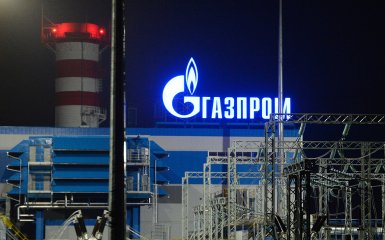Starting July 1, 2024, Russia increased domestic gas prices by 11.2%. This increase is aimed at increasing revenues in Russia's domestic market in response to the loss of gas exports to Europe.
Points of attention
- The loss of the EU market resulted from sanctions against Russia and a reduction in gas supplies to Europe.
- Gazprom faced a sharp decrease in profits and losses due to decreased gas export volumes.
- According to forecasts, the rise in gas prices in Russia will lead to high inflation and a weakening of the population's purchasing power.
- In 2023, Gazprom posted its biggest annual loss in 25 years, with a net loss of $6.9 billion.
- Russia is facing a reduction in gas production volumes and an increase in domestic prices, which will lead to an aggravation of the economic situation.
British intelligence named the consequences of Gazprom's loss of the EU gas market
As noted in the summary, the loss of the EU market was a consequence of sanctions against Russia for its invasion of Ukraine, as well as Russia's deliberate reduction of gas supplies to Europe in response. In 2023, Gazprom's net annual loss was approximately $6.9 billion, its largest annual loss in 25 years.
Gazprom, one of Russia's state-owned energy companies, is considered a monopolist in the domestic gas supply market. Thus, price increases are regulated by the Russian government, the report says.
According to British intelligence, Russian inflation is likely to remain above the Russian central bank's target of 4% in the second half of 2024. This is partly due to the increase in domestic gas prices, along with the increase in other household bills and government spending, which is mainly due to the increase in Russia's military spending in connection with the war in Ukraine.
Gas prices for Russian households are estimated to have risen by nearly 34% since the invasion began, despite Russia becoming the world's second-largest producer of natural gas in 2023. In 2025, they will grow by another 8.2%, which means that it will almost certainly increase inflationary pressure in the Russian economy and weaken the purchasing power of ordinary Russian citizens, — the British Ministry of Defense notes.
Loss of the EU market
It will be recalled that in 2022, Russia delivered about 63.8 billion cubic meters of gas to Europe via various routes. Last year, the volume decreased by another 55.6% to 28.3 billion cubic meters.
At its peak in 2018-2019, the annual flow of gas to the region reached 175 to 180 billion cubic meters.
Gazprom's gas production in 2023 was 355 billion cubic meters, down from 514 billion cubic meters in 2021. For the first time since 1999, Gazprom posted a net loss of $7 billion in 2023.



